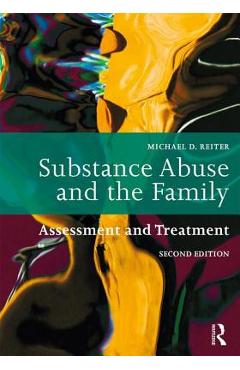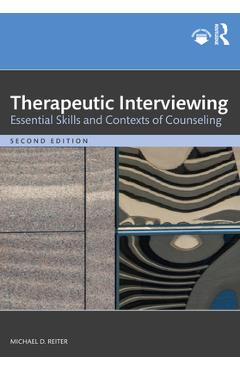Substance Abuse and the Family: Assessment and Treatment - Michael D. Reiter

Detalii Substance Abuse and the Family:
libris.ro
418.09 Lei
464.54 Lei
Psychology
Michael D. Reiter
Substance Abuse and the Family: - Disponibil la libris.ro
Pe YEO găsești Substance Abuse and the Family: de la Michael D. Reiter, în categoria Psychology.
Indiferent de nevoile tale, Substance Abuse and the Family: Assessment and Treatment - Michael D. Reiter din categoria Psychology îți poate aduce un echilibru perfect între calitate și preț, cu avantaje practice și moderne.
Preț: 418.09 Lei
Caracteristicile produsului Substance Abuse and the Family:
- Brand: Michael D. Reiter
- Categoria: Psychology
- Magazin: libris.ro
- Ultima actualizare: 05-06-2025 16:21:01
Comandă Substance Abuse and the Family: Online, Simplu și Rapid
Prin intermediul platformei YEO, poți comanda Substance Abuse and the Family: de la libris.ro rapid și în siguranță. Bucură-te de o experiență de cumpărături online optimizată și descoperă cele mai bune oferte actualizate constant.
Descriere magazin:
In this updated edition of Substance Abuse and the Family, Michael D. Reiter examines addiction through a family systems lens which considers a range of interconnected contexts, such as biology and genetics, family relationships, and larger systems. Chapters are organized around two sections: Assessment and Treatment. Examining how the family system organizes around substance use and abuse, the first section includes contributions on the neurobiology and genetics of addiction, as well as chapters on family diversity, issues in substance-using families, and working in a culturally sensitive way. The second half of the book explores various treatment options for individuals and families presenting with substance abuse issues, providing an overview of the major family therapy theories, and chapters on self-help groups and the process of family recovery. The second edition has many useful additions including a revision of the family diversity chapter to consider sexual and gender minorities, brand new chapters on behavioral addictions such as sex and gambling, and a chapter on ethical implications in substance abuse work with families. Additional sections include information on Multisystemic Therapy, Behavioral Couples Therapy, Motivational Interviewing, and Twelve-Step Facilitation. Each chapter now contains a case application to help demonstrate treatment strategies in practice. Intended for undergraduate and graduate students, as well as beginning practitioners, Substance Abuse and the Family, 2nd Ed. remains one of the most penetrating and in-depth examinations on the topic available. In this updated edition of Substance Abuse and the Family, Michael D. Reiter examines addiction through a family systems lens which considers a range of interconnected contexts, such as biology and genetics, family relationships, and larger systems.Chapters are organized around two sections: Assessment and Treatment. Examining how the family system organizes around substance use and abuse, the first section includes contributions on the neurobiology and genetics of addiction, as well as chapters on family diversity, issues in substance-using families, and working in a culturally sensitive way. The second half of the book explores various treatment options for individuals and families presenting with substance abuse issues, providing an overview of the major family therapy theories, and chapters on self-help groups and the process of family recovery.The second edition h

Produse asemănătoare

The Wisdom to Know the Difference: An Acceptance and Commitment Therapy Workbook for Overcoming Substance Abuse, Paperback/Kelly G. Wilson
![]() elefant.ro
elefant.ro
Actualizat in 28/10/2025
144.99 Lei

Seeking Safety: A Treatment Manual for Ptsd and Substance Abuse, Paperback/Lisa M. Najavits
![]() elefant.ro
elefant.ro
Actualizat in 28/10/2025
432.99 Lei

Substance Abuse Treatment and the Stages of Change, Second Edition: Selecting and Planning Interventions, Paperback/Gerard J. Connors
![]() elefant.ro
elefant.ro
Actualizat in 28/10/2025
259.99 Lei

Art Therapy and Substance Abuse: Enabling Recovery from Alcohol and Other Drug Addiction, Paperback/Libby Schmanke
![]() elefant.ro
elefant.ro
Actualizat in 20/10/2025
216.99 Lei
Produse marca Michael D. Reiter

Therapeutic Interviewing: Essential Skills and Contexts of Counseling - Michael D. Reiter
![]() libris.ro
libris.ro
Actualizat in 28/10/2025
468.64 Lei

Substance Abuse and the Family: Assessment and Treatment - Michael D. Reiter
![]() libris.ro
libris.ro
Actualizat in 05/06/2025
418.09 Lei